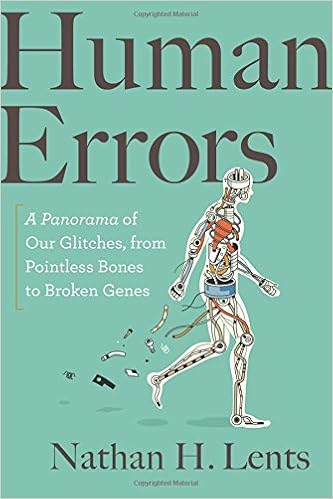 From Steve Laufmann at ENST, on Nathan Lents’s book Human Errors: A Panorama of Our Glitches, from Pointless Bones to Broken Genes.
From Steve Laufmann at ENST, on Nathan Lents’s book Human Errors: A Panorama of Our Glitches, from Pointless Bones to Broken Genes.
As a systems architect, I’ve spent decades designing and implementing large and complex systems of information systems — often involving thousands of individual systems. Such systems are normally embedded in complex processes that may span days, months, or even years. They integrate information systems with human activities, often across multiple organizations. These systems have a lot of moving parts.
It turns out that a number of key design principles are essential for building and modifying complex systems of systems. Get the design principles right, and everything works better. Mess up the design principles, and everything is harder — and sometimes impossible.
A few years ago I realized that these same design principles apply to living systems. So, my insights into systems design may offer an unconventional perspective into how living systems work, and how they change over time.
…
It’s not clear that Lents fully understood my previous comments on the “bad design” argument. In saying that the bad design argument is inherently weak, I was talking about the class of argument rather than specific instances of the class.
There are five ways the bad design argument can (and often does) go wrong:
Not understanding the relevant design goals and constraints.
Not accounting for design tradeoffs, which are necessary in all complex systems… More.
The “bad design” argument goes over best, one suspects, when people are making small talk in venues where correcting misinformation is a social Error. Not a lot of thought goes into it at either end. (“Well, Mizzle, you weren’t supposed to take it that seriously! You spent Three Whole Minutes yattering about blood circulation in the endothermic eye, as if anyone gives a ___!” Oh, so Facts Matter, do they? Here’s the only Fact that really matters around here: Dawkins is Cool and you are not.)
See also: Does Nathan Lents, author of a “bad design” book really teach biology? A doctor looks at his claims about the human sinuses
At Skeptic: Five Questions about Human Errors for Proponents of Intelligent Design
External testicles another instance of bad design? Oddly, in making such a dramatic claim (“there is no good reason that sperm development has to work best at lower temperatures”), Lents does not quote any expert on the subject of temperature and sperm development.
and
Jonathan Wells on Lents’s claim that the human eye is wired backwards